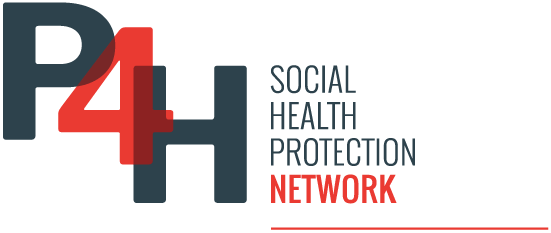Myanmar Development Cooperation Forum (27-28, January, 2014):
Along with Dr. Jigmi Singay, Dr Salma Burton and Dr. Myo Paing, I participated in the above-mentioned Forum. It was attended by over 600 delegates representing the Government of Myanmar and various development partners. The Forum began with remarks by His Excellency the President of Myanmar, followed by the key-note speech by the President of the World Bank, in which he indicated the World Bank’s intention to provide 2 Billion US Dollars (combination of soft loan + grant), of which 200 million US Dollars would be for Universal Health Coverage. The President of the World Bank strongly emphasized the need for Myanmar to embark on UHC, as an important pre-requisite for social and economic development of the country, as a healthy population is essential for improved productivity and equitable access to health care, inter alia, would contribute to peace and harmony in the society.
A comprehensive report of the country’s progress with regard to the agenda set at the previous Development Forum was presented. The establishment of 17 sector working groups as an instrument of better coordination among development partners was emphasized, as well as progress made under each sector.
In the after-noon there were parallel sessions on eight thematic areas of development. I participated in two of them, one focusing on the development of human resources (which mainly addressed education sector issues) and the other on social protection (which included a discussion of social health insurance, the program being developed by the Social Security Board (SSB) under the Ministry of Labor, Employment and Social Services). In the first session, I made the point that good nutrition and health are important pre-requisites for effective education and the development of human resources; whereas their early childhood program targets children 3 years and above, it would be important to target children under two years of age, as well as pregnant and lactating women (as most of the brain development occurs in that window of 1,000 days). In the session on social protection, I suggested that the design of the social health insurance program be done jointly with the Ministry of Health, which is discussing a UHC agenda, so as to harmonize the design, leverage each other’s resources and ensure the technical quality of health services being provided by SSB.
On the second day, the Forum adopted a joint declaration, and many development partners congratulated the Government for a very-well organized Forum, for all the progress made since the last Forum and for the vision of future development for Myanmar which is inclusive, equitable, harmonious and sustainable. The partners pledged their continuing support to the Government’s development agenda and the Government urged the partners to provide such support in a manner that is aligned with the national program, and that is coordinated, and not duplicative. The Forum was successfully concluded at lunch time on the 28th January, 2014.
Social Protection Working Group Meeting and Workshop (29 – 30, January, 2014):
For the first time, WHO was represented in the Social Protection working group meeting, and the workshop that followed it, with the objective of developing a Social Protection Strategy for Myanmar (timeline: December 2014). UNICEF is co-chairing this working group, along with a Dy. Director General in the Ministry of Social Welfare. In view of the Social Health Insurance program that is currently under development by the SSB, I think it is important for us (and for MOH) to be part of the social protection discourse. Moreover, there are likely to be early childhood development programs and conditional cash transfers that may find a place in the social protection strategy, which provide further reasons for us to be involved.
The meeting was graced by the presence of Her Excellency, Deputy Minister of Social Welfare, who made her remarks, encouraging the working group to consider the Myanmar situation and come up with a strategy to achieve protection for the vulnerable and under-served populations against risks and shocks that they face. The World Bank presented their findings from a “mapping” exercise that inventorized the currently ongoing various types of social protection schemes and programs.
The workshop spent a lot of time trying to get a common understanding of what “social protection” means and what the vision for Myanmar would be. While the final formulation is yet to be shared (the consultants were going to take the group discussions and come up with it), the basic gist of it is something like the following: Social Protection comprises all actions (policies and programs) that seek to prevent and mitigate risks and vulnerabilities, and to afford them inclusive access to essential services and economic opportunities and to help them cope with social and financial shocks.
The vision was debated a lot, and the final formulation is likely to look something like: The vision of social protection for Myanmar is a coherent and inclusive society where the vulnerable populations are protected against social and economic risks and shocks and have equitable access to essential services and economic opportunities.
Then a road-map was agreed upon, with a series of workshops, and consultations to develop the strategy with technical assistance from UNICEF, ILO and the World Bank. The task will be carried out by a drafting unit within the Ministry of Social Welfare. It was emphasized that the sectors outside the social welfare ministry, and the relevant development partners, e.g., Education, Health, Agriculture, Rural Development, etc. would be intensively engaged in the process. As such, it would be important for the WCO to identify a suitable staff member to continue our engagement in this process (and inform UNICEF as well as the Ministry of Social Welfare).
Dr Sundararajan S. Gopalan, Health Policy Advisor, World Health Organization, Myanmar Country Office, Yangon

